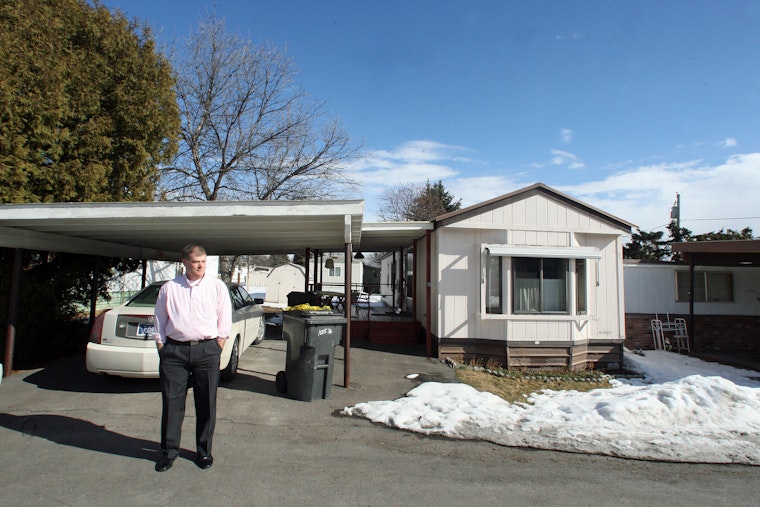How One Community Defended Their Homes and Defeated Private Equity
By Kate Murphy & Alvin Starks

On the day before Thanksgiving in 2018, almost 900 residents in three New Hampshire mobile-home parks received identical letters carrying life-altering news: The land under their homes was about to be sold to a large private equity firm.
For those in the know, this was bad news. Private equity funds promise investors higher than market returns on their money—with scant regard for the human costs. In recent years, the sector had spied an opportunity in consolidating the ownership of mobile-home parks.
That may have been good for business, but it has often left residents—many of them already vulnerable—paying higher rents, and receiving worse services. Happy Thanksgiving.
In the end, private equity did not prevail in New Hampshire. Soon after the sale notice arrived that November, a local community development finance group, the New Hampshire Community Loan Fund, was on the ground with an alternative—turn the parks into resident-owned communities.
Over 22 million Americans live in mobile home parks, also known as manufactured housing communities or, derogatorily, “trailer parks.” Most residents of the approximately 50,000 parks in the United States own their homes but not the land underneath them. Instead, they pay a monthly “lot rent” to the park owner.
But in a resident-owned community, residents form a cooperative and purchase the land under their homes, preserving affordability and managing their own neighborhood. The New Hampshire fund was a pioneer in developing this model: since 1983, it has provided financing to convert 131 parks to resident ownership in New Hampshire—over 30 percent of all the parks in the state. In doing so, it helped over 8,000 families secure affordable housing. While working intensely in New Hampshire, the Community Loan Fund also created a national organization, ROC USA, that is working with residents in 16 other states for cooperative ownership.
The residents liked the idea—under New Hampshire law, they had the right of first refusal on the potential sale—and the community loan fund began raising financing to match the private equity bid, as required by law. This brought them to the Soros Economic Development Fund, the impact investing arm of the Open Society Foundations.
The Soros Economic Development Fund joined in with other investors, including foundations, impact investors, local banks, and individuals, to provide the financial underpinning for the conversion. Specifically, it provided a $7.5 million 10-year loan to the loan fund on concessionary terms that allowed the group to on-lend funds to the residents to acquire a stake in the new resident-owned park, without triggering prohibitive rent increases.
On July 19, 2019, the 874 families in the three New Hampshire parks officially bought their communities. In doing so, they made their homes permanently affordable.
This local victory in New Hampshire is part of a wider struggle over private equity’s interest in manufactured homes—the largest source of nonsubsidized affordable housing in the United States, catering predominantly for low earners.
Investor interest in the parks is a fairly recent trend, but has grown rapidly. A report titled Private Equity Giants Converge on Manufactured Homes [PDF] and released in February of 2019 notes that “the top 50 manufactured housing community owners own around 680,000 home sites … [and that] private equity firms and institutional investors now control a substantial portion of manufactured home communities.”
While approximately 98 percent of all mobile home parks are privately owned, the majority of these owners are family enterprises, some of whom have kept rents affordable and maintain the parks well. Private equity interest has intensified as many of these local, smaller owners retire and sell their parks. Private equity firms tend to work on a short-term basis, planning to sell their investment at a profit in five to seven years. In mobile-home parks, this means they seek to raise rents, while often cutting back on longer-term investment in park improvements and services, to the detriment of residents.
Unfortunately, not everyone can use the right-to-buy option that worked for the three New Hampshire parks. Only a handful of U.S. states have“right-to-buy” laws. That’s one reason Open Society is supporting organizations advocating for similar laws in states that do not yet have them on the books, and for rent controls more broadly—while doing what it can to raise the profile of this troubling issue on the national stage.
Until June 2022, Kate Murphy was an investment principal at Open Society’s Economic Justice Program.

Alvin Starks is director of Narrative and Culture Change with Open Society-U.S..